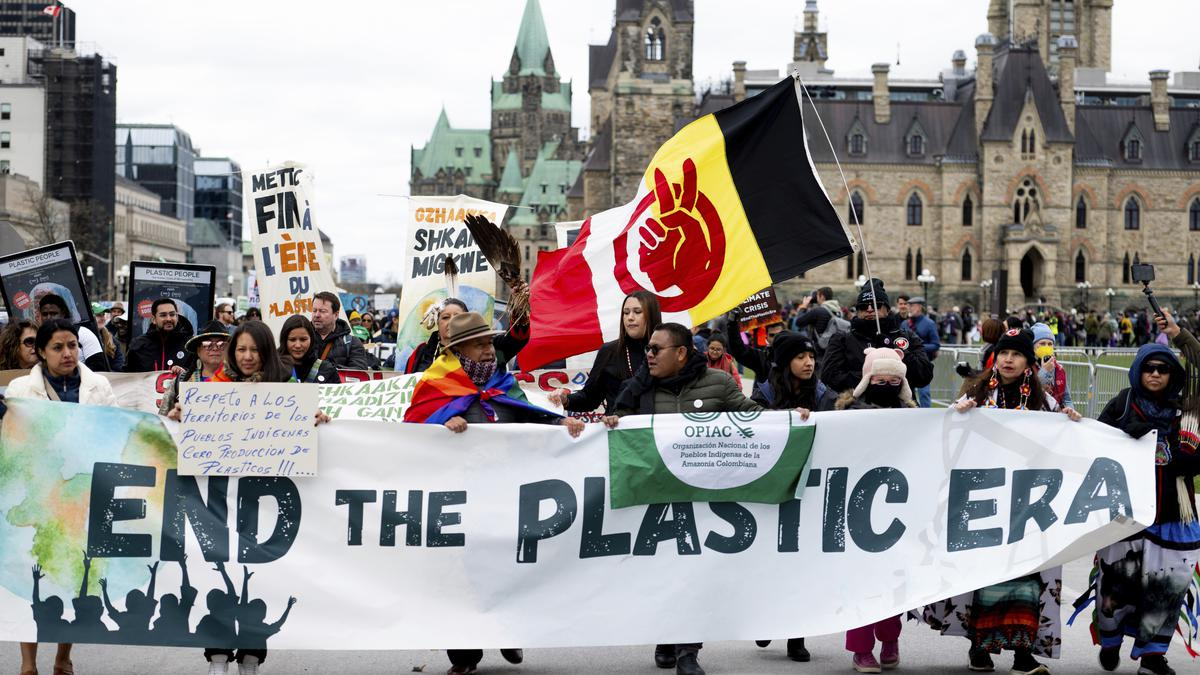Description

Disclaimer: Copyright infringement is not intended.
Context:
- Global leaders will gather in Canada’s capital this week to discuss progress in drafting a first-ever global treaty to rein in soaring plastic pollution by the end of the year..
Background on Plastic Treaty:
- The U.N. Environmental Assembly in 2022 agreed to develop a legally binding treaty by the end of 2024 to tackle plastic pollution throughout its lifecycle.
What Countries Want in the Treaty:
- Plastic and petrochemical-producing countries: Many plastic and petrochemical-producing countries have opposed mentioning production limits. These countries include Saudi Arabia, Iran and China and are known collectively as the group of Like-Minded Countries.
- High-Ambition Coalition: The 60-nation High-Ambition Coalition, which includes EU countries, island nations, Japan and the UAE, aims to end plastic pollution by 2040 with legally binding provisions.
- US: The U.S. proposes allowing countries to set their own plans to end plastic pollution.
- Corporate Brands' Perspective: More than 200 consumer-facing companies including Unilever, PepsiCo and Walmart have joined the so-called Business Coalition for a Plastics Treaty. They support a treaty that includes production caps, use restrictions, product design requirements, and extended producer responsibility to tackle plastic pollution.
For Causes , effects and challenges of plastic pollution, read the following article:
https://www.iasgyan.in/daily-current-affairs/plastic-pollution-24
Plastic regulation in India:
https://www.iasgyan.in/daily-current-affairs/plastic-regulation-in-india
Source:
https://indianexpress.com/article/explained/global-plastic-treaty-canada-significance-9285936/
|
PRACTICE QUESTION
Q) Discuss the divergent perspectives of various stakeholders, including plastic and petrochemical-producing countries, the High-Ambition Coalition, the United States, and corporate brands, on the drafting of the first-ever global treaty to address plastic pollution. How might the different positions of these stakeholders impact the outcome of the treaty negotiations? (250 Words)
|










